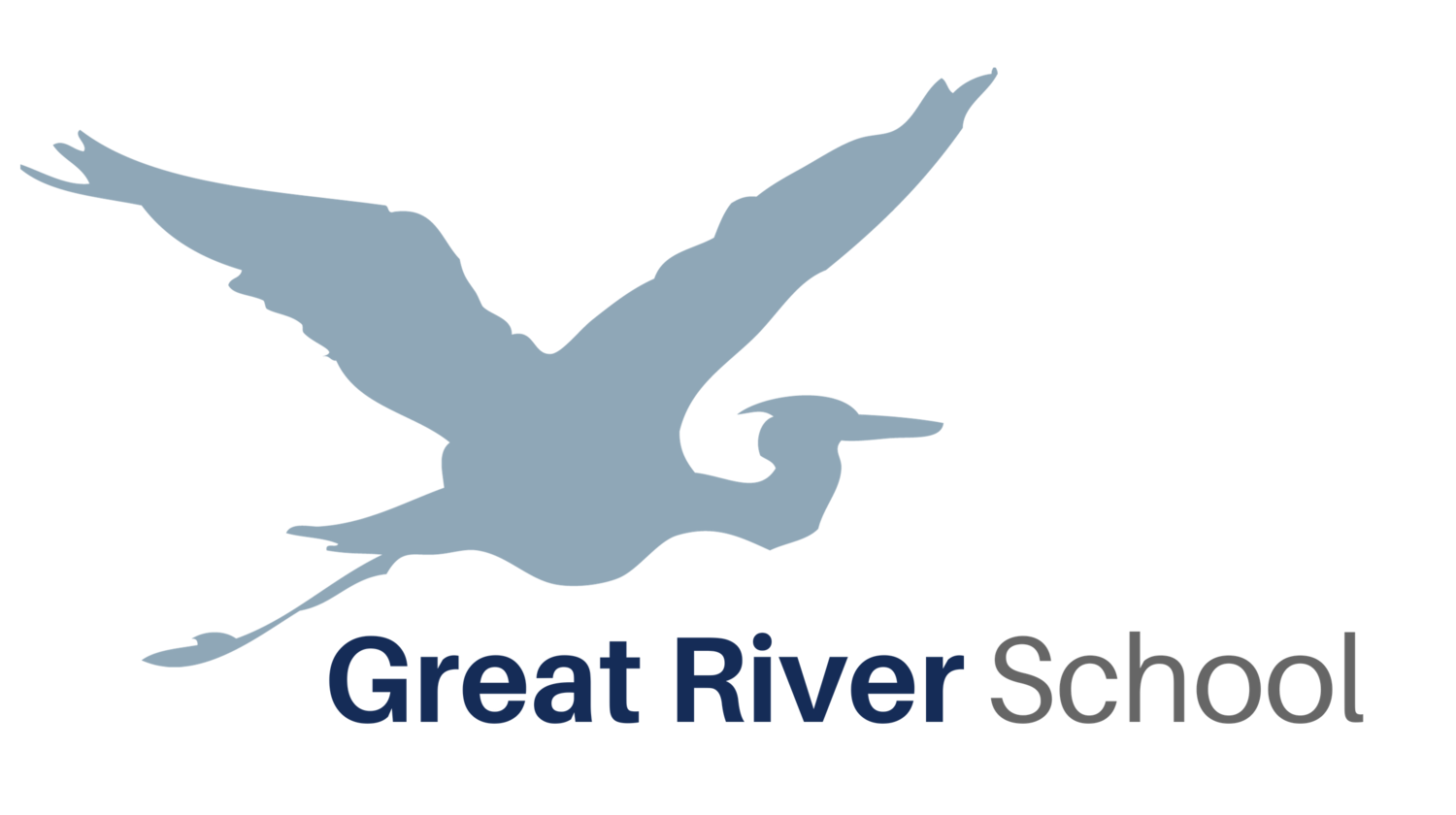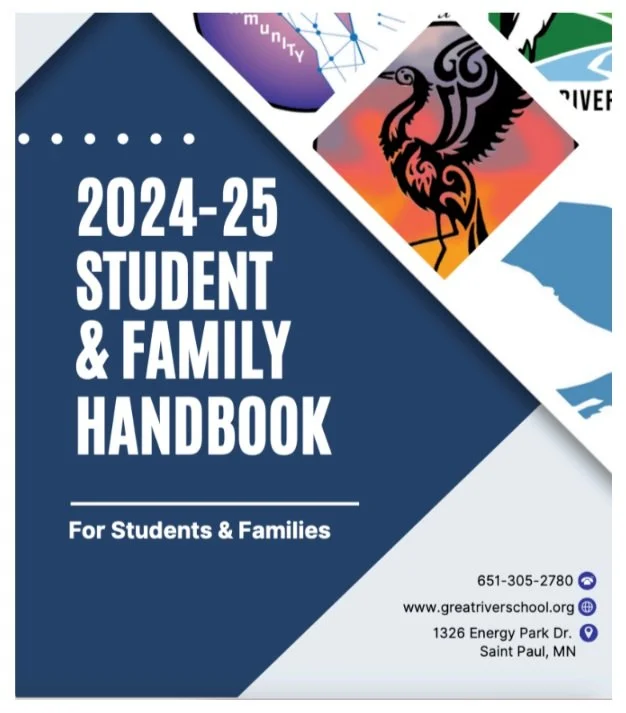Special Education at Great River School
Special Education is a continuum of services available to eligible students with disabilities. Guided by the federal Individuals with Disabilities Education Act (IDEA) and Minnesota regulations, Great River ensures all special education students receive a free and appropriate public education. This is guided by the Individualized Education Plan (IEP) development process, which results in a comprehensive plan addressing needs specific to the individual student.
Great River offers programs and services for students who have met special education eligibility in any of the 13 disability areas identified in Minnesota Rules Chapter 3525. Great River also follows requirements pertaining to districts’ special education responsibilities found in the United States Code, Title 20, Chapter 33, Sections 1400 et seq., and Code of Federal Regulations, Title 34, Part 300. Special Education provides individualized services that assist a student with removing barriers caused by a student’s disability.
In order to assess which students are candidates for special education, Great River School follows a Child Find process that includes tiered, increasing academic and behavioral interventions for students followed by specific data collection and review by our Child Study team. In the event your provider recommends special education evaluation for your student, please reach out to the Special Education Administrators or your student’s guide/advisor.
If you would like further information about Special Education, please review the TSES Manual.
Lindsey Hartjes,
Assistant SpEd Director
Contact:
lhartjes@greatriverschool.org
Brad Wildman,
SpEd Systems Manager
651-305-2780, ext.
Contact:
bwildman@greatriverschool.org
Quick Links
Quick Links
Individuals with Disabilities Education Act (IDEA)
Minnesota Department of Education SpEd Information
Arc Guide to Special Education Advisory Committee (SEAC)
Anonymous Bullying Reporting:
Speak Up! Number - 651-478-5834
See all public events on our 2025-26 Calendar (pdf)
SpEd FAQ
-
Our Special Education Administrators will discuss with you the Special Education services process for qualifying. To request an evaluation for special education services for your child, please contact the Special Education Administrators, Lindsey Hartjes (lhartjes@greatriverschool.org) & Brad Wildman (bwildman@greatriverschool.org).
-
The Individualized Education Plan (IEP) is a comprehensive plan addressing needs specific to the individual student.
For more information, contact, Brad or Lindsey.
-
Section 504 of the Rehabilitation Act of 1973 prohibits discrimination against persons with a handicap in any program receiving federal assistance. The Act defines a person with a handicap as anyone who:
1. Has a mental or physical impairment which substantially limits one or more major life activities; “Substantial limitation” of a major life activity means an important and material limitation and it is determined by the impairment’s nature and severity; how long it will last or is expected to last; and its permanent or long-term impact or expected impact;
2. Has a record of impairment; or
3. Is regarded as having such an impairment.
Great River will identify, evaluate and provide a free and appropriate public education to students who are disabled within the definition of Section 504 of the Rehabilitation Act of 1973. The referral and identification procedures can be obtained by contacting the 504 Coordinator.
If the caregiver(s) disagree with the determination of the district’s professional staff, they have the right to pursue the Great River complaint procedures or file a complaint with the Office of Civil Rights (federal).
For questions regarding a 504 for your child, please contact the Director of Student Services, Matt McElrath at mmcelrath@greatriverschool.org. If you have a 504 Grievance, please refer to the 504 Grievance Procedure.
-
Great River follows the medication policy of the Minnesota Department of Education. The school is not permitted to dispense any medication, including over-the-counter drugs, to students without written permission from a caregiver and a physician.
All student medications (including over-the-counter meds) must be kept in the school health office with the exception of epi-pens or inhalers that the prescribing physician has indicated must be self-carried. The school must have completed forms for any medications a student needs to take at school or on field trips. Forms must be updated annually.
● Prescription Form - Required if student needs to take medication (prescription or non-Rx) during an overnight trip or during the school day.
● Non-Prescription Form - Required for all students (must have prior to key experience departure).
Allows the school to administer listed non-prescription medications and vitamins during the school day or overnight on field trips. Any non-listed medications must be supplied by the caregiver in original packaging.
Special Education Advisory Council (SEAC)
All parents / guardians of students currently receiving special education services are invited to attend and share constructive feedback.
What Is A SEAC?
A SEAC (pronounced “seek”) is an acronym for Special Education Advisory Council, which is a group that provides input on special education issues to its local school district. Its purpose is to advise and advocate, not to decide policy. Minnesota law requires each school district in the state to have a SEAC although it does not specify how the groups should be organized or what duties they should perform. As a result, each SEAC may have a unique mission and structure.
(Source www.pacer.org)
Why Might I Want To Participate On A SEAC?
Parents give many reasons for joining a SEAC, including these:
I may be able to help other families and children with disabilities in my school district.
I can share what I’ve learned since my child began his education.
I can support the school professionals in my district.
I will be a good role model for my child.
I feel good when I make a contribution to this community.
I will learn information and skills that may help me work more effectively with my school district.
I will meet others with similar goals, both parents and school professionals.
I may build positive relationships with others in my district.
I will become more knowledgeable about special education.
By sharing my unique perspective and insights as a parent, I may help the school district work more effectively with families and improve outcomes for children.
Minnesota law (125A.24 Parent Advisory Councils) requires each school district to have a special education advisory council (SEAC). The council is a group that provides input on special education issues to the school. Its purpose is to advise and advocate, not to decide policy.
Committee Meeting dates:
Monthly; The last Monday
(Dates subject to change due to holidays, breaks and school closings)
September 2025
October 2025
November 2025
NO Meeting in December due to Winter Break
January 2026
February 2026
March 2026
April 2026
May 2026
June 2026








